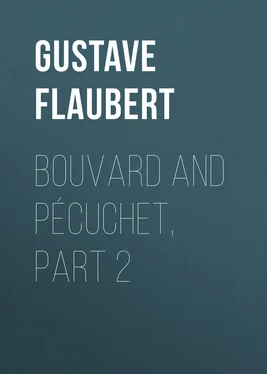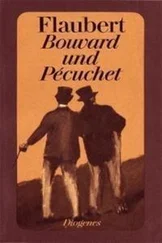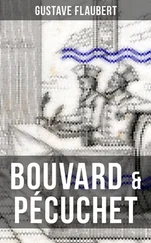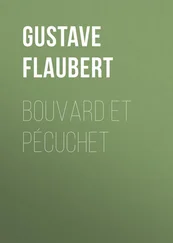Gustave Flaubert - Bouvard and Pécuchet, part 2
Здесь есть возможность читать онлайн «Gustave Flaubert - Bouvard and Pécuchet, part 2» — ознакомительный отрывок электронной книги совершенно бесплатно, а после прочтения отрывка купить полную версию. В некоторых случаях можно слушать аудио, скачать через торрент в формате fb2 и присутствует краткое содержание. Жанр: foreign_antique, foreign_prose, на английском языке. Описание произведения, (предисловие) а так же отзывы посетителей доступны на портале библиотеки ЛибКат.
- Название:Bouvard and Pécuchet, part 2
- Автор:
- Жанр:
- Год:неизвестен
- ISBN:нет данных
- Рейтинг книги:5 / 5. Голосов: 1
-
Избранное:Добавить в избранное
- Отзывы:
-
Ваша оценка:
- 100
- 1
- 2
- 3
- 4
- 5
Bouvard and Pécuchet, part 2: краткое содержание, описание и аннотация
Предлагаем к чтению аннотацию, описание, краткое содержание или предисловие (зависит от того, что написал сам автор книги «Bouvard and Pécuchet, part 2»). Если вы не нашли необходимую информацию о книге — напишите в комментариях, мы постараемся отыскать её.
Bouvard and Pécuchet, part 2 — читать онлайн ознакомительный отрывок
Ниже представлен текст книги, разбитый по страницам. Система сохранения места последней прочитанной страницы, позволяет с удобством читать онлайн бесплатно книгу «Bouvard and Pécuchet, part 2», без необходимости каждый раз заново искать на чём Вы остановились. Поставьте закладку, и сможете в любой момент перейти на страницу, на которой закончили чтение.
Интервал:
Закладка:
But there cannot be several religions, since there is only one God. And when he was at the end of his arguments, the man in the cassock exclaimed: “It is a mystery!”
“What is the meaning of that word? Want of knowledge: very good. But if it denotes a thing the mere statement of which involves contradiction, it is a piece of stupidity.”
And now Pécuchet would never let M. Jeufroy alone. He would surprise him in the garden, wait for him in the confessional, and take up the argument again in the sacristy.
The priest had to invent plans in order to escape from him.
One day, after he had started for Sassetot on a sick call, Pécuchet proceeded along the road in front of him in such a way as to render conversation inevitable.
It was an evening about the end of August. The red sky began to darken, and a large cloud lowered above them, regular at the base and forming volutes at the top.
Pécuchet at first talked about indifferent subjects, then, having slipped out the word “martyr”:
“How many do you think there were of them?”
“A score of millions at least.”
“Their number is not so great, according to Origen.”
“Origen, you know, is open to suspicion.”
A big gust of wind swept past, violently shaking the grass beside the ditches and the two rows of young elm trees that stretched towards the end of the horizon.
Pécuchet went on:
“Amongst the martyrs we include many Gaulish bishops killed while resisting the barbarians, which is no longer the question at issue.”
“Do you wish to defend the emperors?”
According to Pécuchet, they had been calumniated.
“The history of the Theban legion is a fable. I also question Symphorosa and her seven sons, Felicitas and her seven daughters, and the seven virgins of Ancyra condemned to violation, though septuagenarians, and the eleven thousand virgins of St. Ursula, of whom one companion was called Undecemilla , a name taken for a figure; still more, the ten martyrs of Alexandria!”
“And yet – and yet they are found in authors worthy of credit.”
Raindrops fell, and the curé unrolled his umbrella; and Pécuchet, when he was under it, went so far as to maintain that the Catholics had made more martyrs than the Jews, the Mussulmans, the Protestants, and the Freethinkers – than all those of Rome in former days.
The priest exclaimed:
“But we find ten persecutions from the reign of Nero to that of Cæsar Galba!”
“Well! and the massacres of the Albigenses? and St. Bartholomew? and the revocation of the Edict of Nantes?”
“Deplorable excesses, no doubt; but you do not mean to compare these people to St. Étienne, St. Lawrence, Cyprian, Polycarp, a crowd of missionaries?”
“Excuse me! I will remind you of Hypatia, Jerome of Prague, John Huss, Bruno, Vanini, Anne Dubourg!”
The rain increased, and its drops dashed down with such force that they rebounded from the ground like little white rockets.
Pécuchet and M. Jeufroy walked on slowly, pressed close to one another, and the curé said:
“After abominable tortures they were flung into vessels of boiling water.”
“The Inquisition made use of the same kind of torture, and it burned very well for you.”
“Illustrious ladies were exhibited to the public gaze in the lupanars .”
“Do you believe Louis XIV.’s dragoons regarded decency?”
“And mark well that the Christians had done nothing against the State.”
“No more had the Huguenots.”
The wind swept the rain into the air. It clattered on the leaves, trickled at the side of the road; and the mud-coloured sky intermingled with the fields, which lay bare after the close of harvest. Not a root was to be seen. Only, in the distance, a shepherd’s hut.
Pécuchet’s thin overcoat had no longer a dry thread in it. The water ran along his spine, got into his boots, into his ears, into his eyes, in spite of the Amoros headpiece. The curé, while lifting up with one hand the tail of his cassock, uncovered his legs; and the points of his three-cornered hat sputtered the water over his shoulders, like the gargoyles of a cathedral.
They had to stop, and, turning their backs to the storm, they remained face to face, belly to belly, holding with their four hands the swaying umbrella.
M. Jeufroy had not interrupted his vindication of the Catholics.
“Did they crucify your Protestants, as was done to St. Simeon; or get a man devoured by two tigers, as happened to St. Ignatius?”
“But make some allowance for the number of women separated from their husbands, children snatched from their mothers, and the exile of the poor across the snow, in the midst of precipices. They huddled them together in prisons; just when they were at the point of death they were dragged along on the hurdle.”
The abbé sneered. “You will allow me not to believe a word of it. And our martyrs are less doubtful. St. Blandina was delivered over naked in a net to a furious cow. St. Julia was beaten to death. St. Taracus, St. Probus, and St. Andronicus had their teeth broken with a hammer, their sides torn with iron combs, their hands pierced with reddened nails, and their scalps carried off.”
“You are exaggerating,” said Pécuchet. “The death of the martyrs was at that time an amplification of rhetoric.”
“What! of rhetoric?”
“Why, yes; whilst what I relate to you, sir, is history. The Catholics in Ireland disembowelled pregnant women in order to take their children – ”
“Never!”
“ – and give them to the pigs.”
“Come now!”
“In Belgium they buried women alive.”
“What nonsense!”
“We have their names.”
“And even so,” objected the priest, angrily shaking his umbrella, “they cannot be called martyrs. There are no martyrs outside the Church.”
“One word. If the value of a martyr depends on the doctrine, how could he serve to demonstrate its existence?”
The rain ceased; they did not speak again till they reached the village. But, on the threshold of the presbytery, the curé said:
“I pity you! really, I pity you!”
Pécuchet immediately told Bouvard about the wrangle. It had filled him with an antipathy to religion, and, an hour later, seated before a brushwood fire, they both read the Curé Meslier . These dull negations disgusted Pécuchet; then, reproaching himself for perhaps having misunderstood heroes, he ran through the history of the most illustrious martyrs in the Biography.
What a clamour from the populace when they entered the arena! and, if the lions and the jaguars were too quiet, the people urged them to come forward by their gestures and their cries. The victims could be seen covered with gore, smiling where they stood, with their gaze towards heaven. St. Perpetua bound up her hair in order that she might not look dejected.
Pécuchet began to reflect. The window was open, the night tranquil; many stars were shining. There must have passed through these martyrs’ souls things of which we have no idea – a joy, a divine spasm! And Pécuchet, by dwelling on the subject, believed that he understood this emotion, and that he would have done the same himself.
“You?”
“Certainly.”
“No fudge! Do you believe – yes or no?”
“I don’t know.”
He lighted a candle; then, his eyes falling on the crucifix in the alcove:
“How many wretches have sought help from that!”
And, after a brief silence:
“They have denaturalised Him. It is the fault of Rome – the policy of the Vatican.”
But Bouvard admired the Church for her magnificence, and would have brought back the Middle Ages provided he might be a cardinal.
“You must admit I should have looked well in the purple.”
Читать дальшеИнтервал:
Закладка:
Похожие книги на «Bouvard and Pécuchet, part 2»
Представляем Вашему вниманию похожие книги на «Bouvard and Pécuchet, part 2» списком для выбора. Мы отобрали схожую по названию и смыслу литературу в надежде предоставить читателям больше вариантов отыскать новые, интересные, ещё непрочитанные произведения.
Обсуждение, отзывы о книге «Bouvard and Pécuchet, part 2» и просто собственные мнения читателей. Оставьте ваши комментарии, напишите, что Вы думаете о произведении, его смысле или главных героях. Укажите что конкретно понравилось, а что нет, и почему Вы так считаете.












